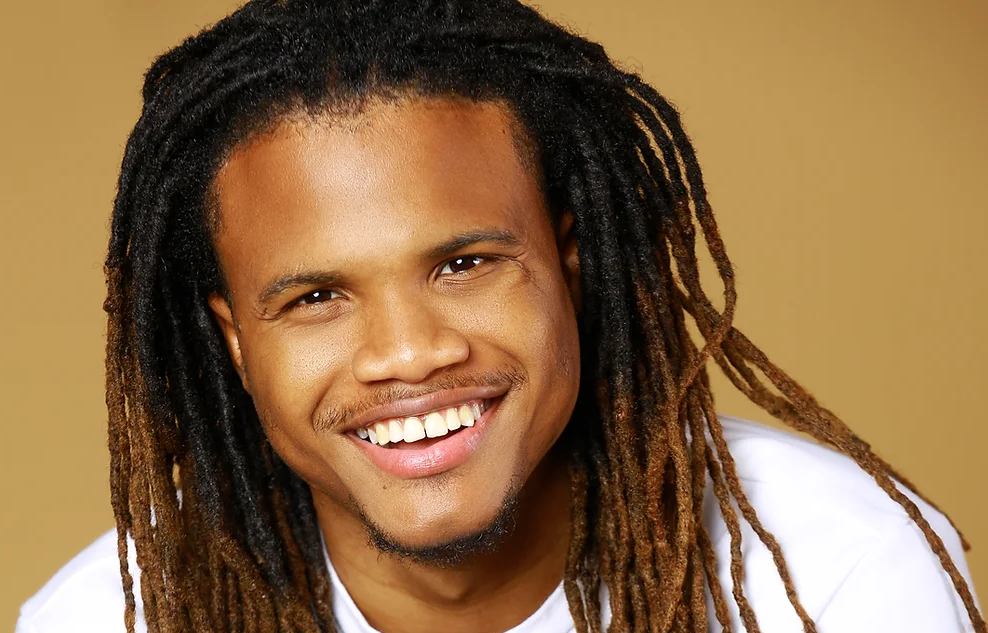on
BY SIMONE J. SMITH
I want you to just ride with me for a second. I am going to introduce our Classic Man just now, but I have to do a precursor…
If one, or both of your parents are West Indian, then growing up with them wasn’t easy. West Indian parents have some very unique child rearing methods that have managed to survive many generations. Often the habits live on even with those who grew up on foreign soil or may only have Jamaican lineage without ever having been there.
Let’s tap into those a little before we move forward with this feature.
Long before recycling was a thing, Jamaicans were the kings and queens of recycling food containers. The butter container is most likely holding the remainder of last Sunday’s dinner rather than actual butter. The most famous container of all was that of Danish cookies (the blue container). Unlocking it was always a mystery because you never know if you would find snacks, sewing supplies, or just obscure items, but very rarely would it ever have Danish cookies.
When you heard the words, “Soon come,” it didn’t necessarily mean that the person would be arriving anytime soon.
Let’s be real; if you can survive growing up in a West Indian household, you can survive anything, and our Classic Man not only survived it, but he has also made a living out of sharing his experience with the world.
Jamaican born actor and viral comedian Dale Elliott Jr. is scheduled to visit Toronto for a highly anticipated show on April 30th, 2023. Dale made his on-screen debut as lead in the movie, Sprinter (Storm Saulter, Will Smith), and continues to make a splash on social media with comedic skits garnering over 20 million views.
Dale is now managed by Toronto-based Juice Comedy management and selected Toronto for his first solo Canadian show. Juice Comedy has managed and represented some of the best black and Caribbean comedians such as Majah Hype, White Yardie, and Michael Blackson. “I’m happy to give exposure to another young and upcoming Caribbean comedian and I’m very excited to watch him become the next star JUICE Comedy represents,” says Wes “Hype” Taylor, Juice Comedy.
“When an opportunity to expand comes you have to take it, and I believe this is an integral step that is needed to take me to the next level,” said Dale Elliott Jr.”
Dale’s show titled “Bad Pickney (Problem Child)” stands to be a combination of hilarious depictions of Jamaican upbringing and pop-culture.
Of course, when I was given the opportunity to interview Dale, I was like, “Hell ya!” As I expected, I spent the majority of the interview trying not to piss myself.
“I was born and raised in Kingston, Jamaica, and I grew up with my grandparents because both of my parents lived abroad. My mom moved to England when I was five, and from dem times I was a barrel pickney. My mannerisms and my jokes are all from my experiences with my grandmother.”
“What does your grandmother have to say about your comedic parodies,” I inquired?
“Stop mock me.” Dale shared laughing.
“I grew up with my cousins. A lot of us were in the house, so we were either arguing or laughing, even when we were arguing we were laughing. There were a lot of personalities, and I was always the troublemaker. One of my grandmothers was a disciplinarian, and I moved with her when I was 15 turning 16, and I really started to see the miserableness.
I started making videos at 18 years old. I started on Vine. The first video I made was about leaving the house, knowing I was supposed to clean up, and coming home to find the broom at the same place. That first video did very well, and this is when I realized that my humor seemed to intrigue people.
My grandmother used to always complain that I ate too much. I love milk and eggs. When I started to cook, it was the worst thing she could have done, because I ate everything in the house, and would get cussed out for that.”
I was curious about how he was selected for the lead role in Sprinter, so he shared that time in his life with me.
“Ms. Leonie Forbes was my acting coach. I would do two hours of acting training each day. It was after I got the role in Sprinter that I actually started acting lessons.
My father and my grandmother always would tell me, “Do what you love.” I used to do track and field and I loved it. My uncle wanted to be an actor as well, and after he died, I began to follow in his footsteps. It was my videos that put me in the position to be in Sprinter. Storm saw me, and thought I was perfect for the role. I got the university thing out the way, and then I started to create.
I like taking on other characters, acting as different personalities. I would love seeing a crowd of people and getting them to laugh.
This is my second show in Canada, and I am really looking forward to doing my thing again.”
Tickets went on sale March 23rd and are almost sold out. Juicecomedytoronto.com
If you are able to get a ticket before they completely sell out, brace yourself for a night of non-stop laughs, surprise appearances, and the rise of a comedy superstar on April 30th, at 8:00PM at the Toronto Pavilion.
Visit Juicecomedytoronto.com for more information.
Stay in the loop with exclusive news, stories, and insights—delivered straight to your inbox. No fluff, just real content that matters. Sign up today!
We, as humans are guaranteed certain things in life: stressors, taxes, bills and death are the first thoughts that pop to mind. It is not uncommon that many people find a hard time dealing with these daily life stressors, and at times will find themselves losing control over their lives. Simone Jennifer Smith’s great passion is using the gifts that have been given to her, to help educate her clients on how to live meaningful lives. The Hear to Help Team consists of powerfully motivated individuals, who like Simone, see that there is a need in this world; a need for real connection. As the founder and Director of Hear 2 Help, Simone leads a team that goes out into the community day to day, servicing families with their educational, legal and mental health needs.Her dedication shows in her Toronto Caribbean newspaper articles, and in her role as a host on the TCN TV Network.














